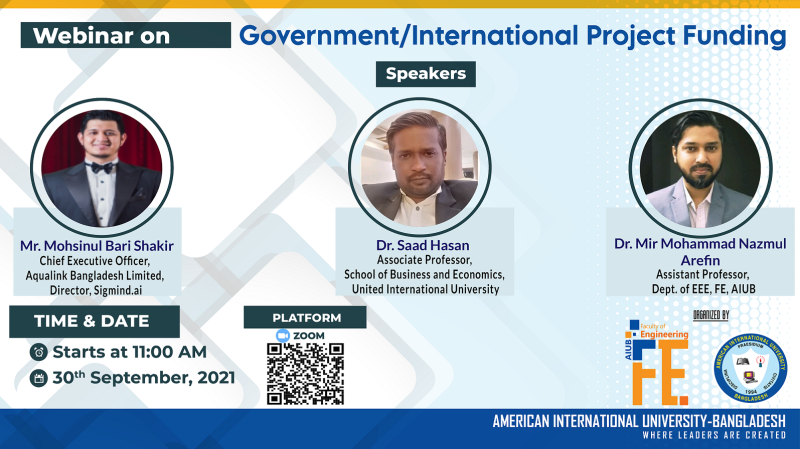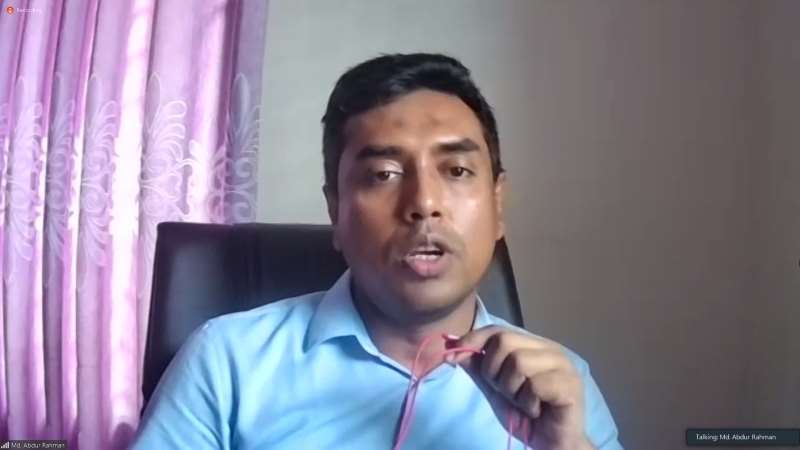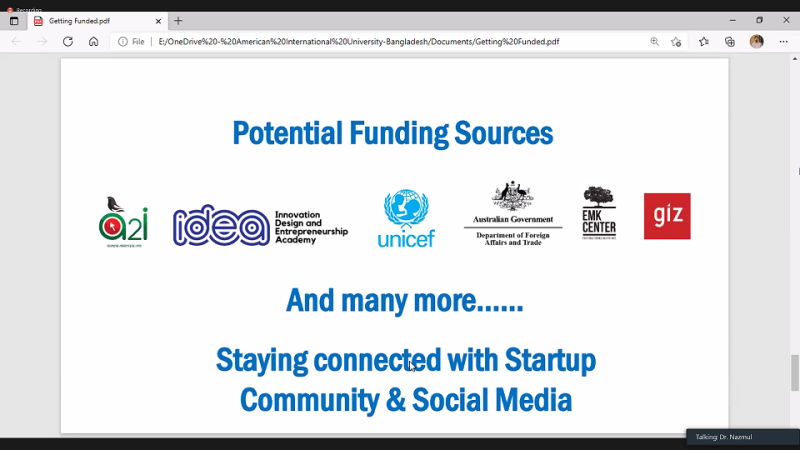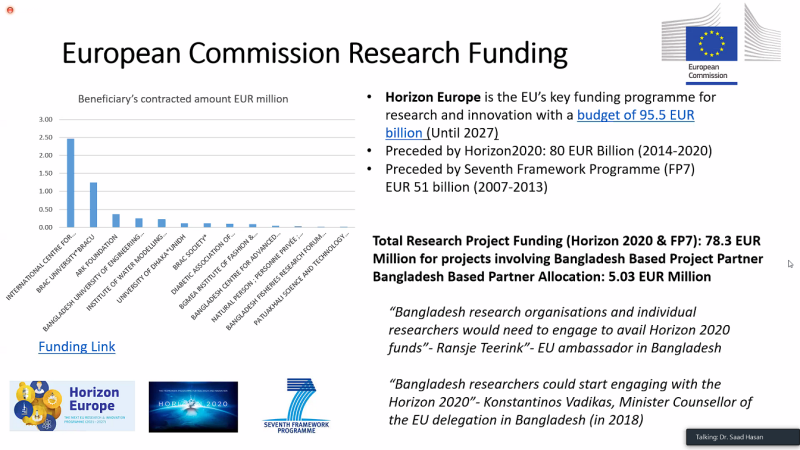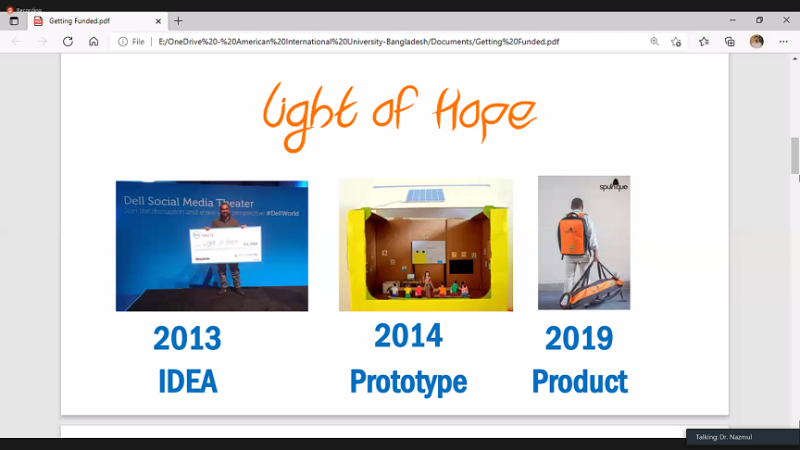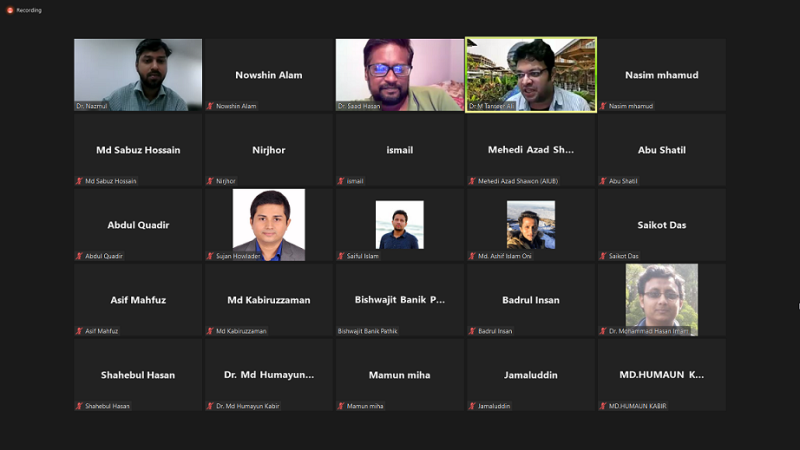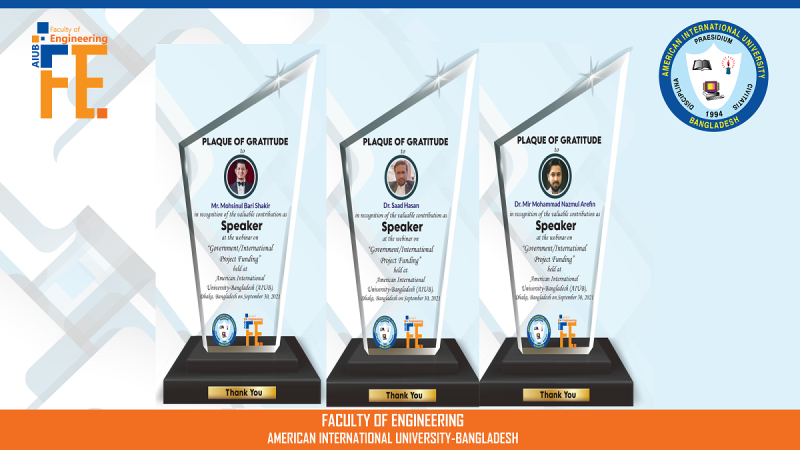A webinar titled "Government/International Project Funding" was organized by the Faculty of Engineering, AIUB on September 30, 2021, Thursday. The webinar was held from 11:00 AM-12:30PM on Zoom online platform. The speaker of the webinar was Mr. Mohsinul Bari Shakir (Chief Executive Officer, Aqualink Bangladesh Limited, Director, Sigmind.ai), Dr. Saad Hasan (Associate Professor, School of Business and Economics, United International University, Bangladesh) and Dr. Mir Mohammad Nazmul Arefin (Assistant Professor, Department of EEE, AIUB). Dr. M Tanseer Ali (Associate Professor, Dept. of EEE) acted as the moderator for the webinar. Dr. Md. Abdur Rahman (Professor and Associate Dean, Faculty of Engineering, AIUB) inaugurated the session by discussing the usefulness of the initiative, identifying the factors that play a part in securing funding and emphasized the importance of research engagement and attention to detail.
The first speaker of the webinar, Mr. Mohsinul Bari Shakir, started his session by stating the necessity to come up with an idea that will benefit people and explained how he and his friends established a company that created small and medium scale embedded IoT products. He also shared their collaboration with Sigmind.ai at Singapore where they made GPU enabled embedded IoT devices that worked with the live feed of CCTV and IP cameras, as well as their current expansion of business at Korea and participation in K-Startup Grand Challenge at Seoul, Korea. The next speaker, Dr. Saad Hasan shared a very educational presentation on the notable local and international funding opportunities. First, he shared his academic and professional experience with both engineering and business management, and followed up with an overview of the research funding opportunities offered by the European Commission, namely Horizon Europe. He also shared information about other sources, such as KGF that places increased focus on IoT based agriculture and proof of concept, 2030 Water Resource Group (WRG) who frequently arrange competitions aiming for the improvement of water resources and require design plans, and IDCOL with a focus on rural area focused implementation and a history of providing research grants to university-based research teams. The last speaker, Dr. Mir Mohammad Nazmul Arefin, shared his personal experience with turning their idea of a solar-powered multimedia classroom developed as undergraduates into a commercially viable product and acquiring funding from YGAP, UNESCO and the Australian government. Regarding preparing application packages for funding, he recommended the audience to distinguish their solution by addressing a particular problem clearly and carefully draft the proposal by contacting the organizers whenever more information is necessary to improve the application.
Once the talk ended, a brief question-answer session took place where topics like the ethical standards for utilizing funding money and the process of becoming part of a consortium were discussed. Prof. Rahman provided the closing remarks by thanking the speakers for the informative session and encouraging the audience, especially the faculty members of FE to rethink and improve their research and proposal writing approach. He mentioned how AIUB’s new research policy supports the institution's researchers, but emphasized finding external funding as the end goal.
